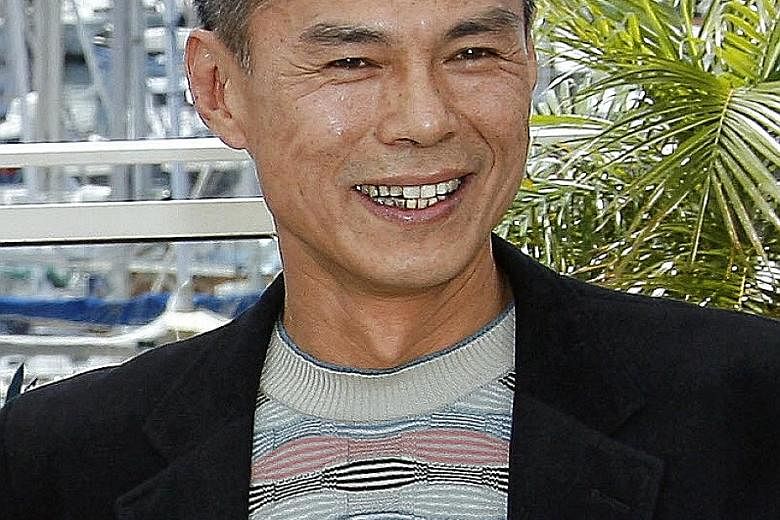HONG KONG • In Quentin Tarantino's 1992 breakthrough movie Reservoir Dogs, there are scenes of four men in black suits and a man shooting a cop with two guns.
His source of inspiration was Hong Kong action director Ringo Lam, whose 1987 triad film City On Fire, starring Chow Yun Fat, set the box office on fire with its stunning action, gritty violence and portrayal of bad guys with a conflicted sense of morality and loyalty.
Last Saturday, Lam, 63, was found unconscious in bed by his wife.
According to Apple Daily, she called for an ambulance, but he was already dead by the time it turned up. No foul play is suspected by the police.
He reportedly was not suffering from any major ailments, but had been taking medication for the flu in recent days.
Lam, whose City On Fire bagged the best director prize at the Hong Kong Film Awards, cut his teeth studying acting with Chow in Hong Kong and film-making in Toronto.
He made his directing debut with comedy Esprit d'Amour in 1983, taking over the reins from another director part way through the shooting.
He cemented his standing in the industry, working for well-known producer Karl Maka.
After their tie-up in the fourth edition of Maka's Aces Go Places series of action comedies yielded a winner, Maka backed Lam to shoot any movie he wanted.
City On Fire was the result, following in the footsteps of director John Woo's genre-defining crime movie A Better Tomorrow (1986), also starring Chow.
Lam went on to further sketch his bleak views on society in Prison On Fire (1987), again starring Chow, and School On Fire (1988).
In 1996, Lam stretched his wings abroad by casting Belgian action hero Jean-Claude Van Damme in Maximum Risk.
But the movie failed to make an impact and Lam returned to Hong Kong to helm Full Alert, which earned five Hong Kong Film Awards nominations.
Just as the characters in City On Fire could not always control their destinies, Lam also could not totally escape the winds of change in Hong Kong's movie industry, with films targeted for mainland Chinese audiences, for example, being subjected to strict rules on who could be cast.
He also did not like the growing pervasiveness of special effects, feeling that these diluted the statement he wanted his movies to make.
The upshot was that he made fewer films in the 2000s.
But he did link up with fellow directors Tsui Hark and Johnnie To for 2007's Triangle, which was screened out of competition in Cannes.
Before the rollout of his final film, Sky On Fire, in 2016, Lam told the South China Morning Post: "I am at an age where I have something to say about life.
"What is life? There's nothing that I can do to decide when it ends. I am powerless and I am very angry, so I put that all onto the screen.
"I package my films with action; I do it for the audiences. Meanwhile, I have to put these lines into the story to speak my mind - I only need that little space for myself.
"I am a very simple man. I tell stories about people, with a little bit of visual excitement thrown in for everyone's enjoyment. That is it."
But that was more than enough to influence Tarantino.
Speaking to the Baltimore Sun about his Reservoir Dogs movie, he tipped his hat to City On Fire. "It's a really cool movie. It influenced me a lot. I got some stuff from it," he said.
Daniel Wu, who starred in Sky On Fire, pledged to carry the torch.
Posting online, he wrote: "Ringo was part of Hong Kong's new wave movement from the late 1980s to early 1990s that put Hong Kong cinema on the map. Rest in peace, sir. We will carry on your legacy."

